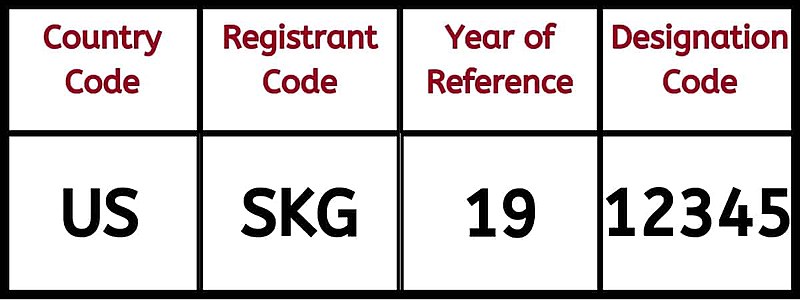December 21, 2023 – If you’re in the music industry, you’ve likely heard about the importance of ISRCs. But what are they? How do they work? And how do they affect you as a creator or music industry professional? Don’t worry, we’ve got you covered.
ISRCs – short for International Standard Recording Codes – are essential to use and understand if you’re a creator, sound recording copyright owner, label, or anyone participating in the sphere of recorded music. In this blog, we’ll break down these unique codes, what they mean, and how they should be used. You will also learn the repertoire submission guidelines and who to contact if you have additional questions.
What are ISRCs?
ISRCs have existed as unique identifiers for sound recordings and music videos to facilitate accurate royalty payments since they were introduced by the industry in the late 1980s. ISRCs are distinct from codes that identify works for songwriter and publisher royalties (International Standard Musical Work Codes or ISWCs) or barcodes for point of sale (Universal Product Codes or UPCs).
Each ISRC is associated with a unique set of metadata. It details everything about the recording repertoire — from the artist, title, duration of the recorded song, and information about the release to the country of mastering and the recording date. A single ISRC should only be used for one recording, and each distinct recording should only have one ISRC. Today, recordings are required to have associated ISRCs by virtually all download and streaming services, as well as collecting societies, including SoundExchange. In July 2020, the RIAA designated SoundExchange as the authoritative source for ISRC data in the United States. SoundExchange has made our ISRC database publicly available via our ISRC Search tool, which is an evolving resource updated daily with new releases.
How to get ISRCs
There are two general ways to obtain an ISRC for a new sound recording.
1. U.S. recordings owners can obtain a Registrant Code through the U.S. ISRC Agency directly
2. Alternatively, ISRCs can be obtained through ISRC managers who are registered with the U.S. ISRC Agency. ISRC Managers are most often distributors, but they might also be mixing or mastering engineers, artist, labels, or any other party who is interested in assigning ISRCs on behalf of their clients.
ISRC Construction
ISRCs are 12-character codes composed of four different segments:
1. Country Code – This is a two-character segment determined by the registration authority, which will inform Registrants of the correct country code to use along with allocating a Registrant Code. The country code should stay the same regardless of release or recording territory.
2. Registrant Code – Three unique characters provided to Registrants by the U.S. ISRC Agency
3. Year of Reference – Two characters representing the year the ISRC was created – not necessarily related to when the Registrant Code was allocated, or the recording was made.
4. Designation Code – To be used by Registrants to ensure that each ISRC they assign is unique

Repertoire Submission Guidelines
The SoundExchange database is populated with ISRCs and metadata submitted exclusively by sound recording copyright owners, distributors, and ISRC managers. We accept repertoire and ISRCs from registered rights owners via the SXDirect online portal user interface, DDEX Feeds (ERN and RDR/MLC), and Flat Excel Files. For questions and guidance on setting up a DDEX feed to deliver your repertoire, please email [email protected].
To include a recording in our database we require certain basic points of metadata, including the recording’s ISRC, the artist and track title, but we also collect information that can help with international royalty collection such as the ‘country of fixation’ and ‘date of first release’.
If possible, it’s important to submit your ISRCs to SoundExchange before the recordings are released or soon after so we have the good ISRC and metadata in our system to match with usage from the streaming services who report to us. For the same reason, you should strive to provide accurate metadata and include as many data points as possible to help identify recordings. Data requirements vary internationally, so more thorough data associated with ISRCs can aid in global royalty collections.
If you have questions about how you can submit ISRCs to us, please reach out to [email protected].
